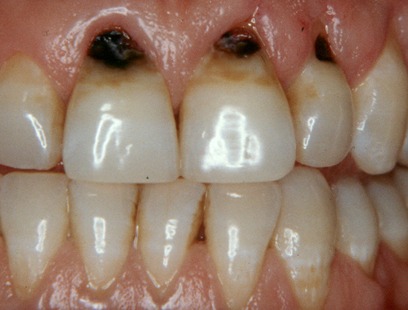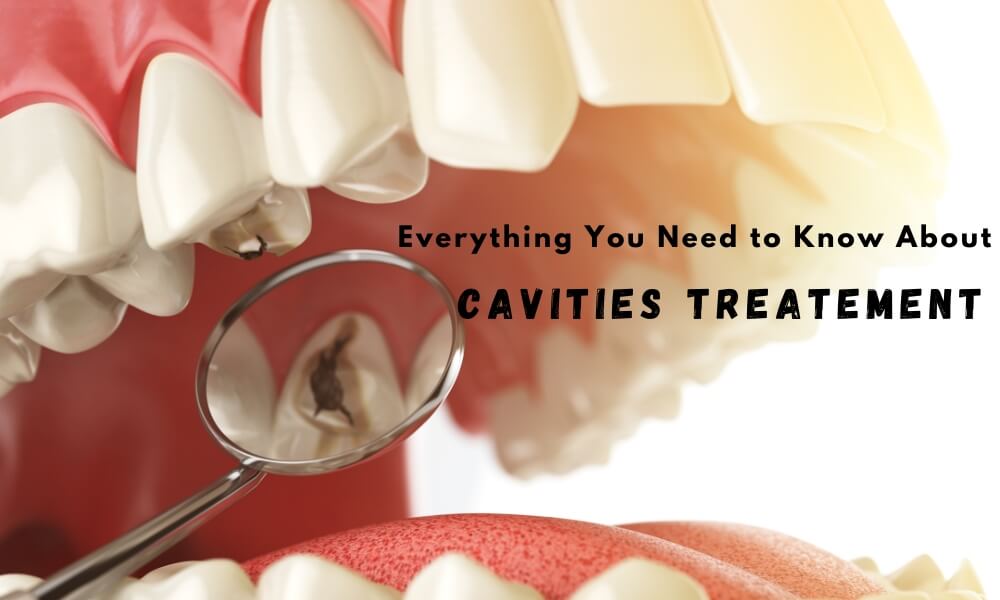Everything You Need to Know About Cavities Treatment
A lack of awareness about common dental hygiene causes common dental problems like tooth decay, cavities, periodontal disease, and even oral cancer. The Ministry of Health and Family Welfare statistics have found that over 50% of Indians suffer from dental problems, and over 60-80% of children have gaps between teeth. Read on to learn more about cavities treatment, one of the most common problems affecting Indians.
What Are Dental Cavities?
Cavities are small holes in the teeth caused by decay. These cavities cannot be treated naturally and need professional intervention. Without timely treatment, these could damage the entire tooth, including the pulp, and lead to tooth extractions.

What Causes Dental Cavities?
Before you learn about the different cavity treatment options, you must know what causes them in the first place. Without proper brushing and flossing, food and bacteria build up, forming a sticky film called plaque on the teeth’s surface and along the gumline. The acids in the plaque-causing bacteria and the sugar from your food demineralise the tooth enamel, causing tiny holes. Over time, the acids eat into the tooth, affecting the dentin and even the root. But tooth decay doesn’t happen overnight. It happens over a period of time and could even be difficult to spot in the early stages.
The different stages of tooth decay include:
Demineralisation: During this process, the enamel begins to lose calcium. The bacteria in the plaque feed on the sugar from your food, releasing acids that cause white spots on the teeth. The right cavities treatment at this stage is called remineralisation, wherein the dentist suggests fluoridated water or fluoride toothpaste to replenish lost minerals.
Enamel Decay: When the lost minerals are not replenished, the plaque attacks the enamel further, causing the tooth to turn a brownish colour. Over time, a lesion is formed, which soon becomes a cavity. At this stage of tooth decay, treatment involves dental filling wherein the dentist cleans and removes the affected area and fills it with resin, ceramic, or dental amalgam.
Decay: At this stage of tooth decay, the infection has spread to the inner layer of the enamel called dentin. The damage at this point is rapid because dentins are softer than the enamel. You must visit the dentist immediately if you experience tooth sensitivity. Cavities treatment at this stage includes crown placement and dental filling. The latter is only effective if the decay is in the initial stages.
Pulp Decay: If you experience severe tooth pain followed by extreme tooth sensitivity to hot or cold substances, it could indicate that the decay has affected the tooth’s centre, leading to a hole in the tooth. At this stage, only a root canal can prevent further deterioration. During this cavities procedure, the dentist completely removes the infected pulp and fills it with a dental crown to protect the nerves. He may also suggest antibiotics if the infection has spread to the neighbouring teeth.
Abscess: By this time, the infection is severe as it has spread to the root, thereby causing pus to form at the tooth. Without prompt cavities treatment, the infection could damage the jawbones and the surrounding tissue. Tooth extraction is the best treatment at this stage of tooth decay, although the dentist may try to salvage the situation by trying a root canal.
Cavities Treatment Cost
Cavities treatment cost varies depending on the stage of tooth decay. Dental fillings are relatively inexpensive compared to dental crowns, which could set you back by 2500-5000 INR, depending on the hospital’s location. A root canal is expensive, with costs ranging from 5000- 15,000 INR, but the price varies depending on the city and the type of treatment. Dental extraction is the final stage of the tooth decay medical procedure and the most expensive.
How To Prevent Cavities?
You can prevent cavities by brushing your teeth regularly using fluoride toothpaste, especially after eating sugary and starchy food. Don’t forget to floss daily to get rid of the food particles stuck between the teeth.
Reach out to us if you are looking for a cavities treatment hospital in India. We offer preventive dental checkups for signs of dental decay and cavities.

